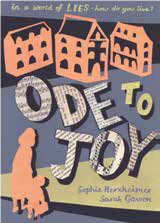The first book to tell the full story of one of the greatest yet most unknown operations of WWII.
OPERATION SPARROW:
The Incredible True Story of the Spies Who Tricked Hitler and Won the War
by Jason Bell
Hanover Square Press, Fall 2026
(via Vertical Ink Agency)
Three American special forces parachute into Nazi-allied Hungary in the dead of night, spring 1944. The three-man team is designed to look like the spear’s tip of an Allied invasion to help Hungary extract itself from Hitler’s grasp. The leader of the first Sparrow team is iron-jawed, barrel-chested Florimond Duke: all-American football player, big-time New York advertising executive, and knowing volunteer for a likely suicide mission, but he takes the risk because there is no one better suited for selling the Nazis on a lie. If their plan succeeds, they will be captured by the Germans, and Hitler will be fooled into sending reinforcements far from the coming Allied invasion at Normandy to counter a make-believe invasion instead of the real one. If it fails? German armor will destroy the coming Allied landing in France, and the war could be lost. But against enormous odds, Sparrow’s first stage is completely successful – the Nazis divert twelve divisions to counter the fake invasion. The next stage is Canada’s daring mission to keep Hitler’s forces pinned down – it is like Canada’s invasion at Dieppe, except an unmitigated success. Hitler was completely convinced by the plot, and the Canadian forces made him pay a high price for his mistake. Operation Sparrow was one of the most astoundingly risky and successful missions of WWII, yet its story has not been told, and Jason Bell’s OPERATION SPARROW will be the first book to tell the full story of one of the greatest yet most unknown operations of the war.
Jason Bell, Ph.D. is a professor of philosophy at the University of New Brunswick, Canada. He has served as Fulbright Professor at Göttingen in Germany, and has taught at universities in Belgium, the United States, and Canada.

 In late October 1780, a slave ship set sail from the Netherlands, bound for Africa’s Windward and Gold Coasts, where it would take on its human cargo. The
In late October 1780, a slave ship set sail from the Netherlands, bound for Africa’s Windward and Gold Coasts, where it would take on its human cargo. The 